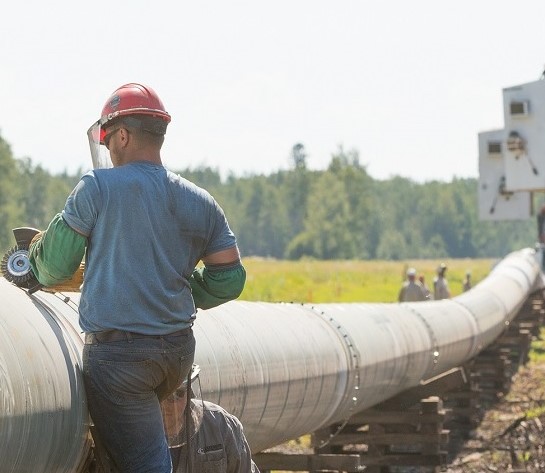Enbridge: Tariffs Would Take Years to Impact U.S.-Canada Crude Flows
(Reuters) — Tariffs on Canadian oil would need to be in place for years before significantly altering the amount of crude the U.S. imports from its northern neighbor, the CEO of Canadian pipeline company Enbridge Inc. said on Tuesday.
CEO Greg Ebel told reporters the energy systems of the two countries are too integrated and there is no easy way for the U.S. to replace the approximately 4 million barrels per day of Canadian oil it imports.
"It would take a very long time of sustained tariffs before you see changing trade patterns," Ebel said. "It would be very difficult for them to find other sources of supply, and equally so, very difficult for the producers in Canada to be able to find other sources of demand."
Ebel made the comments following the company's annual investor day event in New York, making him the first CEO of a Canadian energy company to speak to reporters since U.S. President Donald Trump's new tariffs on goods from Mexico and Canada took effect on Tuesday.
Trump applied 25% tariffs to most Canadian goods and 10% to energy products.
Approximately 90% of Canada's crude oil exports go to the U.S. Enbridge moves about 40% of crude oil produced in North America, and its Mainline network is North America's largest crude oil pipeline network.
The Mainline transports light and heavy crude oil, natural gas liquids and refined products from Edmonton, Alberta, to various markets in Canada and the U.S. Midwest.
Canada's only current option for bypassing the U.S. when it comes to oil exports is its Trans Mountain pipeline system, which runs from Alberta to the British Columbia coast where oil can be loaded onto tankers to be shipped overseas.
Ebel said Enbridge is not seeing its Canadian oil producer customers shift barrels from the Mainline — which he said is currently full — onto Trans Mountain.
"We don't have enough pipeline capacity to serve the needs of our customers the last several months," he said. "I expect to see continued strong demand down into the United States, just given the size of the (refinery) demand market there."
Enbridge said on Tuesday it plans to invest C$2.5 billion ($1.7 billion) in its liquids and natural gas systems, with C$2 billion allocated to its Mainline network through 2028.
Ebel said while the tariffs may impact the pricing of Canadian crude, the "economic reality" of oil demand and market flows is "difficult to break."
Related News
Related News

- 1,000-Mile Pipeline Exit Plan by Hope Gas Alarms West Virginia Producers
- Valero Plans to Shut California Refinery, Takes $1.1 Billion Hit
- Three Killed, Two Injured in Accident at LNG Construction Site in Texas
- Greenpeace Ordered to Pay $667 Million to Energy Transfer Over Dakota Access Pipeline Protests
- Boardwalk’s Texas Gas Launches Open Season for 2 Bcf/d Marcellus-to-Louisiana Pipeline Expansion
- New Alternatives for Noise Reduction in Gas Pipelines
- Construction Begins on Ghana's $12 Billion Petroleum Hub, But Not Without Doubts
- Missouri Loses Control Over 1.5 Million-Mile Gas Pipeline Network as Feds Step In
- Greenpeace Ordered to Pay $667 Million to Energy Transfer Over Dakota Access Pipeline Protests
- DOE Considers Cutting Over $1.2 Billion in Carbon Capture Project Funding





Comments